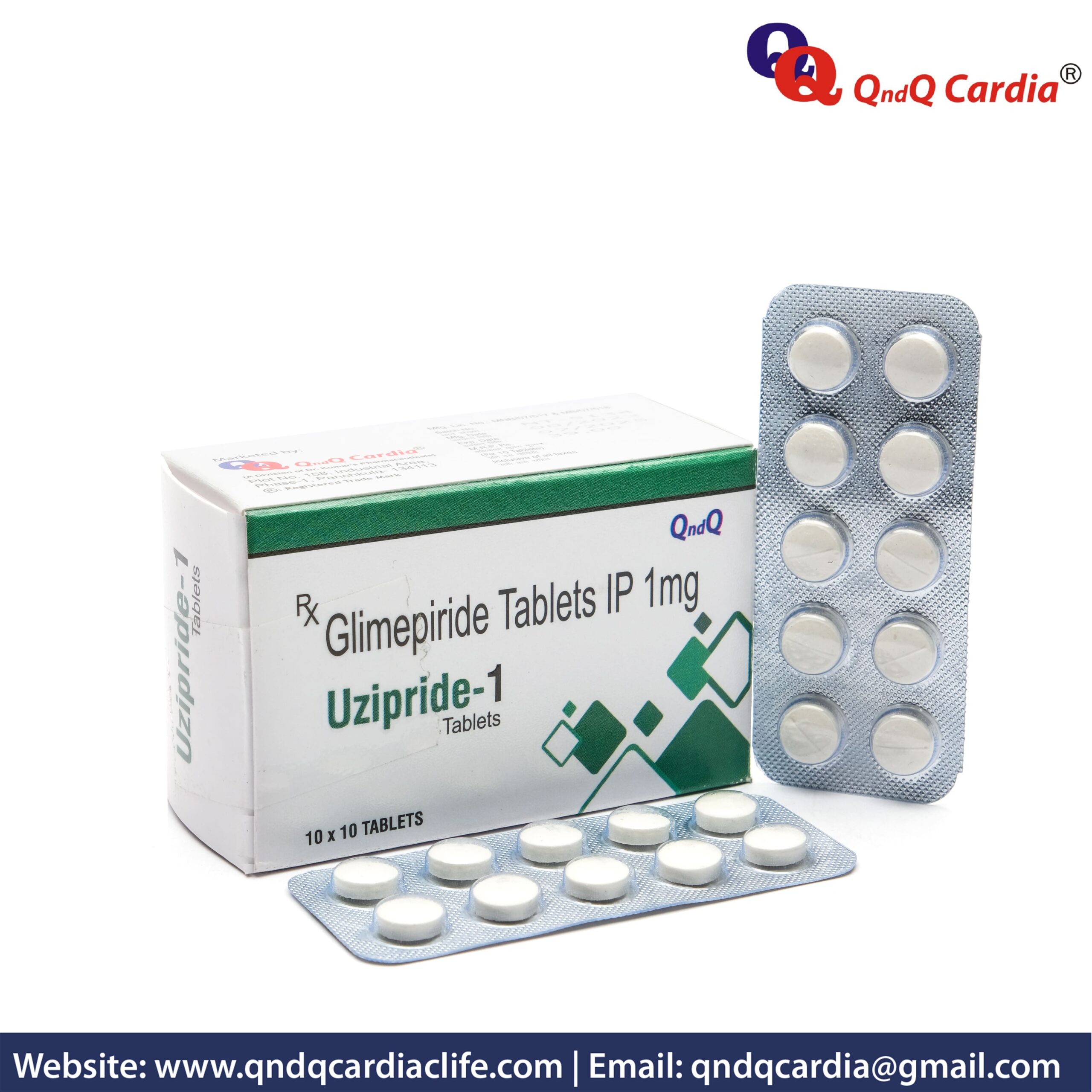Description
Glimepiride 1 mg Tablets Uses
Glimepiride 1 mg Tablet belongs to the group of antidiabetics called ‘sulfonylureas’, which are used to treat Type 2 diabetes Mellitus. Type 2 diabetes, also known as non-insulin-dependent diabetes mellitus is a lifelong disease. Insulin is a hormone that regulates sugar in the cells, type 2 diabetes occurs when your body stops producing enough insulin and cells do not respond to insulin properly. Insulin helps the body to control sugar levels in the blood, especially after having a meal. Type 2 diabetes can not be cured, it is a lifelong disease. Glimepiride 1mg Tablet targets insulin-producing cells called beta cells in the pancreas. Glimepiride activated calcium channels on these cells, allowing insulin to pass out of them. This insulin then causes every cell in the body to absorb and use glucose, resulting in a decrease in elevated blood glucose levels. This helps to prevent the onset of type 2 diabetes symptoms.
Directions to Use
- Glimepiride 1mg tablet is available at the doctor’s prescription. It requires proper diet and exercise routines for best control of your certain condition, do not use it without a prescription.
- Consume Glimepiride 1mg tablet with your first meal as directed by your medical healthcare expert, do not chew or break the tablet. Swallow it as a whole with a glass of water.
- The dosage and duration are based on your medical condition and your body’s response to the medication.
- Your doctor will start with a small volume of dosage and will increase it according to medical health conditions, this will reduce the risk of side effects.
- It is best to take this medication simultaneously every day, this will balance blood sugar levels and provide you the best results.
Side Effects
It is important to remember that this medication has been given to you because your doctor has decided that the benefits outweigh the risks of side effects. There are common side effects that do not require treatment and go away on their own. Talk to your doctor if any of these side effects persist for a long period, common side effects are such as –
- Headache
- Nausea
- Blood pressure drop
- Light headed
- Sweeting
- Numbness
- Visual problems
Individuals who adhere to a healthy diet and exercise routine do not experience any severe adverse reactions. However, if you experience any severe adverse reactions while receiving treatment Glimperid 1mg tablets, please inform your healthcare provider immediately. Rare and serious side effects are such as –
- Allergic reactions
- Shock
- Abnormal liver functions
- Jaundice (Yellowing skin and eyes)
- Bile flow issue
- Liver inflammation
- (Low blood glucose level) Hypoglycemia
Precautions
- You should inform your doctor if you have a history of kidney disease or liver disease, as well as if you have any allergies.
- This medication is available on prescription, do not try to consume Glimepiride 1 mg Tablets on your own without consulting your healthcare expert it can cause severe serious side effects.
- Consuming more than the prescribed volume will not benefit you or it can cause side effects. Do not stop taking Glimepiride 1 mg Tablets or skip the dose, this will make your blood sugar level uncontrollable.
- Do not consume this medication if you are a pregnant woman or a breastfeeding mother, Glimepiride medication passes through breast milk and can affect the baby’s growth. Also, tell your doctor before start using this medication if you are planning to be a mother.
- Do not drive or operate heavy pieces of machinery, if you are not familiar with its effects. Glimepiride 1 mg Tablets can cause low blood glucose levels which can affect your ability to focus or react.
- Caution this medication is not recommended for the use of children under 18 years.
















